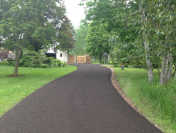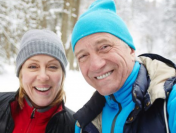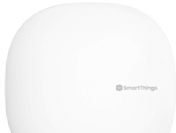Summer’s longer days and warmer weather are a welcome change for most people, but hot weather can pose serious health risks for seniors. Older adults are especially vulnerable to the summers heat and humidity due to physical changes that come with aging, chronic health conditions and the side effects of medications. While there are many physical and mental benefits to getting outside to enjoy the fresh air, it’s important that seniors take precautions to avoid heat-related injuries. Here are some important hot weather safety tips for older adults: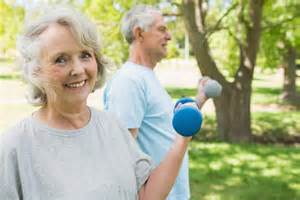
Stay Cool by Staying Inside
Air conditioning is vital for seniors on a hot and humid day, especially when the temperature climbs above 90°F. Seniors should spend as much time as possible in air conditioned spaces. If home doesn’t have A/C, keep shades, blinds and curtains closed during the day and use fans. Avoid turning on the oven and only open windows at night.
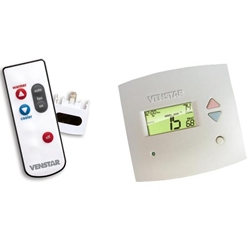 During a heat wave, the A/C should be set between 70°F to 74°F. A programmable thermostat with a handheld wireless remote control makes it easy for seniors to adjust the temperature without having to get up. To assist seniors living alone, install a thermostat that can be adjusted remotely by family members or caregivers via telephone or the Internet.
During a heat wave, the A/C should be set between 70°F to 74°F. A programmable thermostat with a handheld wireless remote control makes it easy for seniors to adjust the temperature without having to get up. To assist seniors living alone, install a thermostat that can be adjusted remotely by family members or caregivers via telephone or the Internet.
Avoid Dehydration
Dehydration is one of the leading causes of heat-related health issues. Seniors should drink 6-8 glasses of fluids a day that are non-alcoholic and decaffeinated — either water, juices or sports drinks. Carbonated sodas and pops may taste good, but they’ll only increase dehydration.
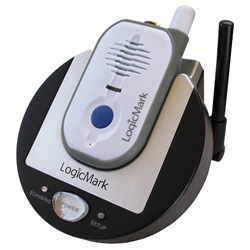 Warning signs of dehydration include weakness, headache, muscle cramps, dizziness, confusion, and passing out. Seniors should call 911 right away if these symptoms occur. A personal alert system with a wearable pendant gives seniors who live alone an easy way to call for help if they’re having a medical emergency.
Warning signs of dehydration include weakness, headache, muscle cramps, dizziness, confusion, and passing out. Seniors should call 911 right away if these symptoms occur. A personal alert system with a wearable pendant gives seniors who live alone an easy way to call for help if they’re having a medical emergency.
Dress Appropriately
Seniors should wear loose-fitted clothing in light colors (dark colors absorb heat) when the weather is hot and steamy. While outdoors, sunscreen and a lightweight, broad-brimmed hat helps to keep the sun of the face and prevent sunburn. Some people find natural fabrics such as cotton to be cooler than synthetic fibers.
Exercise Smartly
On really hot days, seniors should avoid exercising and doing a lot of outdoor activities. Early morning and early evening are the best times to venture outside because temperatures tend to be lower.
Swimming is one of the best ways for seniors to stay healthy, fit and cool during the summer months. Be sure to remove all trip and fall hazards from around the pool area. To provide a safe environment for seniors and swimmers of all ages, equip your pool with a pool alarm and provide weak swimmers with a life vest to improve buoyancy.
Listen to Weather Reports
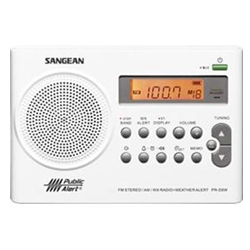 Seniors are at an increased risk for a heat-related illness on days when the temperature and humidity are high or when there is an air pollution alert in effect. Doctors suggest that seniors check the daily weather report before going outside.
Seniors are at an increased risk for a heat-related illness on days when the temperature and humidity are high or when there is an air pollution alert in effect. Doctors suggest that seniors check the daily weather report before going outside.
For accurate weather forecasts and early warnings of approaching storms like tornadoes, hurricanes and floods, a NOAA weather alert radio is a handy addition to any senior’s home. Look for a model with the instant alert feature that automatically announces National Weather Service warnings, even when the radio is turned off.
Other Hot Weather Safety Tips
For additional hot weather advice, print out this list of tips published by NH Healthy Families called “Summer Safety for Seniors” and post it on your senior’s refrigerator to remind them to be cautious when temperatures climb into the 80s and 90s.


